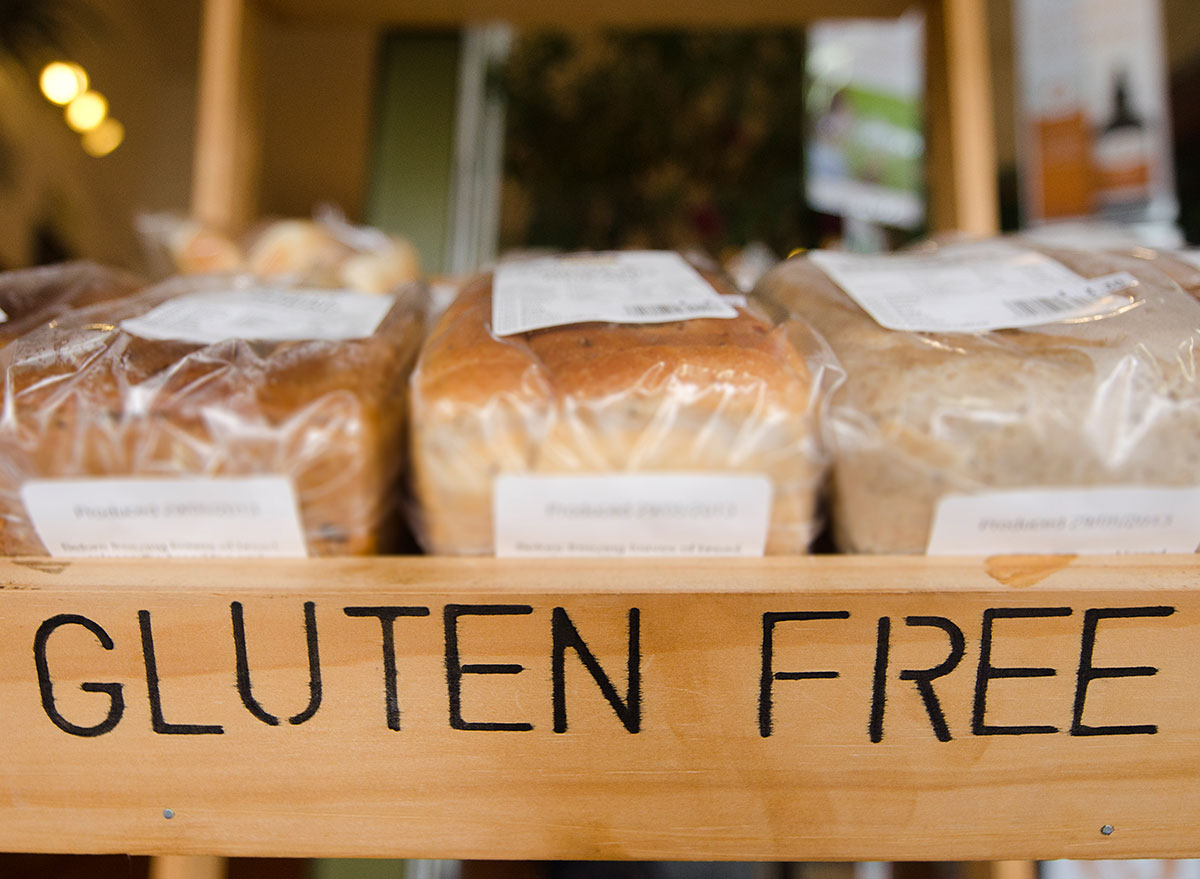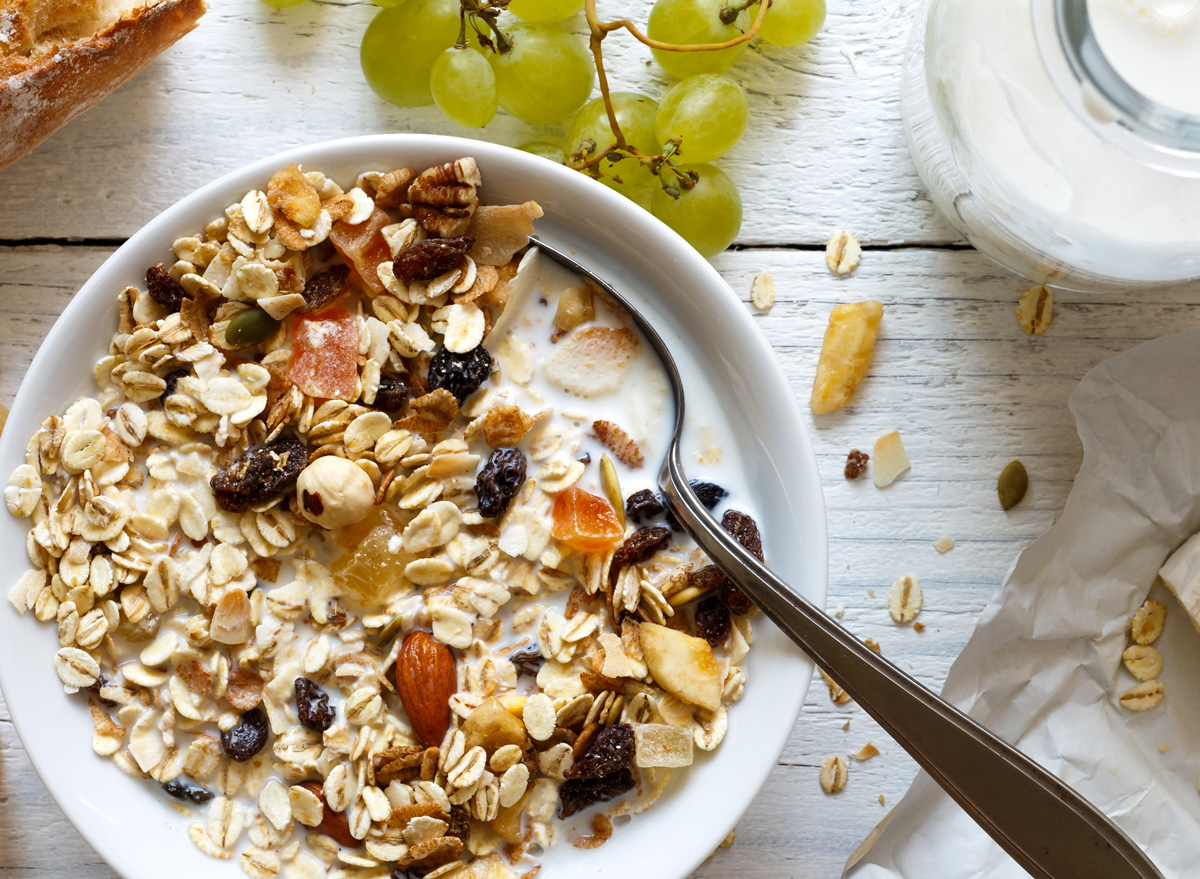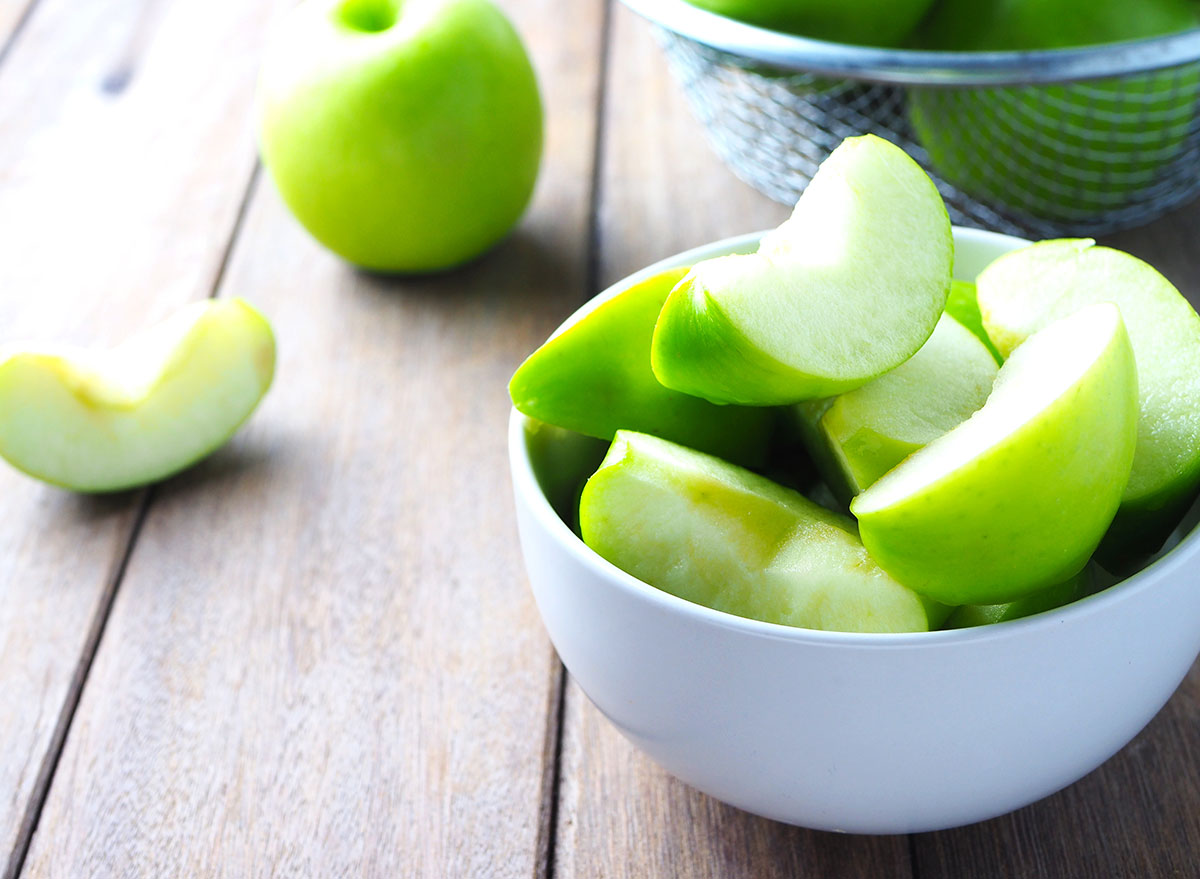7 Worst Diet Myths You Need to Stop Believing, According to a Dietitian
The majority of America seems incredibly confused when it comes to nutrition. The bizarre health trends people adopt because they "heard it from their friend" can make me cringe.
Just the other day at a coffee shop, I overheard a woman sharing how she is on a "no carb, no sugar plan" while she sipped on a Naked Green Smoothie (aka 56 grams of sugar from fruit concentrate), the other nodding as she whipped out a Special K Protein bar. I swear, people think a banana is a shocking food choice, yet don't even question a product if it says "skinny" on the label.
As a Registered Dietitian Nutritionist, I've heard and seen it all. I could make this list incredibly long with the nonsense I've heard, but let's stick to the top things you might THINK you're doing right with nutrition.
Gluten-free, organic, and natural equate with health.

Just to be clear, gluten is a protein found in wheat, barley, oats, and rye, and needs to be strictly avoided for those with the allergy or sensitivity to gluten—but not everyone on the planet has a gluten allergy. And did you know that sugar, corn, soy, and rice are gluten-free? You can just as easily rack up the calories and spike blood sugar from gluten-free products as any other gluten-containing food.
Just yesterday, I had a woman who switched her high-fiber, whole grain bread to a gluten-free bread that was actually higher in calories and had virtually no vitamins, minerals, or fiber. Those who refuse the whole grain bread, but are fine with gluten-free pretzels and sugar-cookies are missing the bigger picture of a healthful diet. Instead, look at what the food is made of. Avoid sugar and avoid a laundry list of ingredients.
As for organic, while I absolutely recommend organic whenever possible to reduce the intake of pesticides, insecticides, and herbicides, it doesn't always equate with health. Sugar, granola bars, and boxed mashed potatoes all can be organic, but it does not mean they are healthy. Read the ingredients and understand if the product is made with processed ingredients and sugar first. If yes, put it back. If you are concerned about where to put your money when it comes to organic, look to the Dirty Dozen and Clean Fifteen and Environmental Working Groups as resources.
As for natural—HA! Do NOT let a brown box with the word "natural" fool you. The Food and Drug Administration (FDA) does not yet have a formal definition of the term, but it does have a policy that companies are required to mind when it comes to labeling. According to the agency website, the FDA "has considered the term 'natural' to mean that nothing artificial or synthetic (including all color additives regardless of source) has been included in, or has been added to, a food that would not normally be expected to be in that food."
The agency points out that the policy does not address food production methods, which means pesticides, pasteurization, or irradiation may have been used to produce a food item, and it may still be safely labeled as "natural." In other words, the term may not mean what you think it does.
Skipping breakfast saves calories and helps with weight loss.

This is probably one of the worst things you can do for your metabolism. Your body has been in a fasted state all night, and now you are going to try and run on fumes to start your day? Instead of "saving calories," your body pushes into "survival mode," where it begins training itself to store the next meal's calories instead of using it as fuel (aka storing as fat). According to The National Weight Control Registry, tracking over 10,000 Americans who have lost a significant amount of weight and kept it off, breakfast is one of the four leading behaviors to their success (78% consume breakfast daily).
Calories are the enemy.

For some reason, calories have become the bad guy in our culture and everyone seems to be fixed on a magic number of "1200." What many people don't realize is that your body will either burn or store calories based on the quality, timing, and amount you get at any one time. Eating more, not less, of the right types of foods help you lose weight. Sticking to 1200 calories per day, but eating boxed SmartOnes, Special K Bars, and sugar-free chocolates are only going to further deplete your body and cause it to hold on to as much energy as possible.
It makes me cringe when someone beats their chest because their yogurt has "only 60 calories," yet the label is loaded with artificial sweeteners, preservatives, and added sugars. These additives and sugars can be the problem with blood sugar problems, hormones, and the inability to lose weight. So, what does work? Eating quality foods, eating every few hours, and being less concerned about the number of calories, and more concerned with what you are putting into your body.
All "healthy swaps" are healthy.

Not all supposedly healthier alternatives are actually better for you. For example:
- Egg beaters instead of whole eggs. Eggbeaters have a long list of ingredients containing everything from natural flavors, colors, and vegetable gums. A whole egg, is just, well an egg. An egg loaded with its own vitamins and minerals (no additives).
- Light, fat-free, 60-calorie strawberry yogurt instead of regular plain. These "light versions" are loaded with artificial sweeteners, flavors, and a bunch of ingredients that you probably can't pronounce. These ingredients could be doing harm to your blood sugar and hormones in the long run. Opt for the regular yogurt that reads "pasteurized milk and live active cultures" on the label instead.
- Opting for coffee (or Red Bull) instead of eating a meal for breakfast. Your body is already dehydrated upon waking. By feeding it dehydrating fluids, chemicals, and not giving it the right "fuel" (aka complex carbs and protein), the body will not run efficiently. Without breakfast, your body starts to mix-up hormone signals, which can cause some major problems.
- Eating a protein bar instead of your packed lunch. Most protein bars are pure sugar, carbohydrates, and a LOT of added ingredients that you'll have trouble pronouncing. Plus, it's hard to get a good amount of protein and fiber from them. Instead, pack leftovers from home, or a whole grain wrap with lots of veggies and protein paired with fruit on the side.
Carbohydrates will make me gain weight.

Carbohydrates are not the enemy. They are our body's quickest form of useful energy and contain fiber, a nutrient that helps to normalize blood sugar and provide satiety and weight management. Carbohydrates are a problem when we consume them in excess, and when they are refined and sugary (aka white bread, pasta, cookies, sweets). Instead of refined carbohydrates and sugars, opt for fiber-rich carbohydrates like quinoa, brown rice, sweet potatoes, fresh fruits, and vegetables.
No eating after 6 p.m.

If you are physically hungry after 6 p.m., eat. If it has been more than 3-4 hours since your last meal, eat. If you are having an apple and peanut butter as a snack, have it. What you want to avoid instead is eating overly large portions, having anything that will hinder the ability to sleep, (candy, sweets, pop), and eating too close to the time you'll be sleeping. I recommend limiting eating 1-2 hours before bed to prevent GI issues since you aren't able to digest your food very well in your sleep.
Fat will make you fat.

This idea of "fat-free" seems to be stuck in our heads. It was the biggest craze in the '80s and '90s, but what happened was we replaced fat with sugar. As a result, everyone got fatter and more chronically sick. I'm not advising butter and lard (these contain saturated and trans fats to limit and avoid), but instead, reach for olive oil, avocado, fatty fish, nuts, and seeds. These healthy unsaturated fats are essential for the body and support brain health, cognition, memory, and proper absorption of nutrients.
Now that I've outlined the myths you shouldn't fall into believing, you may be wondering: So what SHOULD I be doing?
Read the ingredients on a label. If you can't pronounce it, and the list is extremely long, you likely need to put it back. Understand that every person is unique, and there is no one "diet" that fits all. Look for foods that come from the earth, the sea, and the sky. In addition to this, be an aware consumer in the shopping aisle, at the coffee shop, and at a restaurant. If you don't know, ask a trained professional in nutrition, a Registered Dietitian, before taking the advice from your friend at the gym.
Written by Kristen DeAngelis, RD, LDN, RYT is a Registered Dietitian and Registered Yoga Teacher located in Cincinnati, Ohio for Simplemost.









